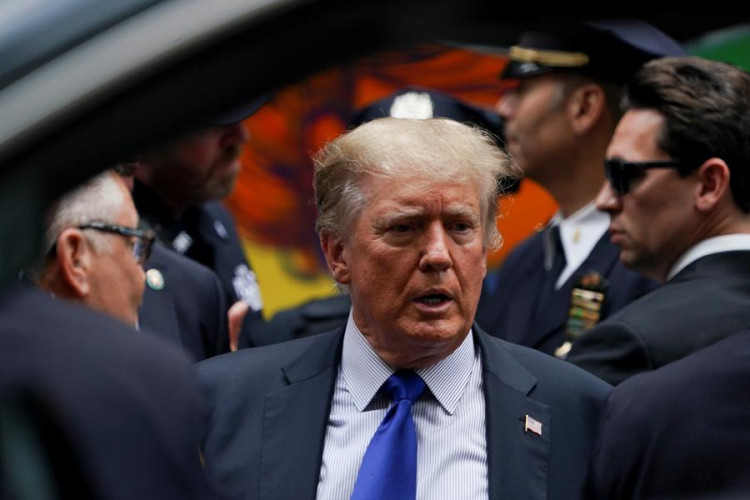A trove of redacted documents was released by special counsel Jack Smith on Friday, shedding light on the evidence used to charge former President Donald Trump in connection with efforts to overturn the 2020 presidential election. The release comes just weeks before the 2024 election, intensifying public scrutiny on the case.
The documents, spanning nearly 2,000 pages, are heavily redacted, with large portions believed to include grand jury testimony and FBI interviews conducted throughout the investigation. Despite the redactions, the visible parts offer glimpses into the prosecution's case against Trump, primarily featuring information previously made public, such as the transcript of Trump's call with Georgia's secretary of state, urging him to "find" additional votes, as well as Vice President Mike Pence's letter explaining why he could not overturn the election results on January 6, 2021.
The evidence made public includes snippets from the House January 6 committee's interview with a White House employee who described Trump's reaction upon learning about the Capitol riots. The employee stated that Trump seemed surprised when informed that rioting was taking place, then proceeded to watch the events unfold on television in the Oval Dining Room. "I'm taking off his outer coat... and I get the TV, like, ready for him, and hand him over the remote," the employee said, adding that he then left to get Trump a Diet Coke.
Four volumes of evidence were released on Friday. The first volume consists of excerpts from House January 6 committee interviews, while the second features sealed pages, along with tweets and social media posts from Trump and his allies, including one of Trump's tweets during the January 6 Capitol riot asserting that Pence "didn't have the courage" to block the certification of the election.
The third volume contains photos of the fake elector certificates that Trump allies signed in a bid to overturn the 2020 results, as well as excerpts from Pence's 2022 autobiography and transcripts of Trump's call with Georgia's secretary of state. The final volume includes a memo from Trump ally John Eastman, outlining a plan for Pence to reject Congress's certification of the 2020 election, and fundraising emails from Trump's campaign leading up to January 6.
U.S. District Judge Tanya Chutkan ordered the release of these documents, rejecting Trump's request to delay it, arguing that withholding such information could create an impression of election interference. "If the court withheld information that the public otherwise had a right to access solely because of the potential political consequences of releasing it, that withholding could itself constitute - or appear to be - election interference," Chutkan stated in her decision.
The Trump campaign, meanwhile, decried the document release as politically motivated. "Radical Democrats are hell-bent on interfering in the presidential election on behalf of Lyin' Kamala Harris," campaign spokesman Steven Cheung said in a statement, labeling the investigation as a "partisan, Unconstitutional Witch Hunt that should be dismissed entirely."
The recently unsealed documents included numerous exhibits that prosecutors are using in the case against Trump, who has been charged with four crimes stemming from his actions following his election loss, including conspiracy to defraud the United States and obstruction. Trump has pleaded not guilty to all charges.
In a separate filing, special counsel Smith provided a "factual proffer" detailing how Trump "resorted to crimes to try to stay in office" after losing the 2020 election. Smith alleges that Trump, along with private co-conspirators, orchestrated efforts to overturn legitimate election results in seven states: Arizona, Georgia, Michigan, Nevada, New Mexico, Pennsylvania, and Wisconsin. According to Smith, these plans involved deceit and were aimed at obstructing Congress's certification of the election results.
Despite a Supreme Court ruling this summer granting partial presidential immunity for actions taken while in office, Judge Chutkan will have to determine how this immunity applies to Trump's conduct in this case. The Supreme Court ruling has already prompted Smith to adjust his indictment, narrowing the charges while attempting to navigate the boundaries of presidential immunity.






